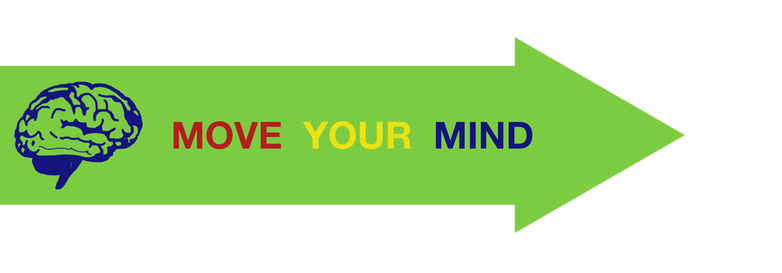Recommended Reads and Resources
This page is dedicated to books, websites and other resources about movement and the mind. I add new ones as I find them. Below are some great book suggestions, followed by some useful websites.
You may also wish to check out the Mental Health First Aid site- it's full of information for what to do if you or someone you know may be struggling with mental health. If you think someone is struggling, the professional advice is to ask outright. Ask what's wrong. Ask if there's help. It's ok to be real. When it's on the table, you can get help.
You may also wish to check out the Mental Health First Aid site- it's full of information for what to do if you or someone you know may be struggling with mental health. If you think someone is struggling, the professional advice is to ask outright. Ask what's wrong. Ask if there's help. It's ok to be real. When it's on the table, you can get help.
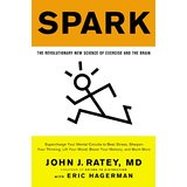
Spark: The Revolutionary New Science of Exercise and the Brain
In SPARK, John Ratey, MD embarks upon a fascinating journey through the mind-body connection, illustrating that exercise is truly our best defense against everything from depression to ADD to addiction to menopause to Alzheimer's. Filled with amazing case studies (such as the revolutionary fitness program in Naperville, Illinois, that has put the local school district of 19,000 kids first in the world of science test scores), SPARK is the first book to explore comprehensively the connection between exercise and the brain.
In SPARK, John Ratey, MD embarks upon a fascinating journey through the mind-body connection, illustrating that exercise is truly our best defense against everything from depression to ADD to addiction to menopause to Alzheimer's. Filled with amazing case studies (such as the revolutionary fitness program in Naperville, Illinois, that has put the local school district of 19,000 kids first in the world of science test scores), SPARK is the first book to explore comprehensively the connection between exercise and the brain.
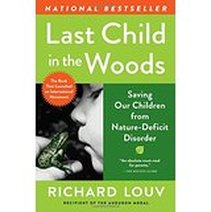
Last Child in the Woods: Saving Our Children From Nature-Deficit Disorder
In this groundbreaking new work, Richard Louv directly links the lack of nature in the lives of today's wired generation-he calls it nature deficit-to some of the most disturbing childhood trends, such as rises in obesity, Attention Deficit Disorder (Add), and depression. Nature-deficit disorder is not a medical condition; it is a description of the human costs of alienation from nature. This alienation damages children and shapes adults, families, and communities. There are solutions, though, and they're right in our own backyards. Last child in the Woods is the first book to bring together cutting-edge research showing that direct exposure to nature is essential for healthy childhood development-physical, emotional, and spiritual. What's more, nature is a potent therapy for depression, obesity, and ADD.
In this groundbreaking new work, Richard Louv directly links the lack of nature in the lives of today's wired generation-he calls it nature deficit-to some of the most disturbing childhood trends, such as rises in obesity, Attention Deficit Disorder (Add), and depression. Nature-deficit disorder is not a medical condition; it is a description of the human costs of alienation from nature. This alienation damages children and shapes adults, families, and communities. There are solutions, though, and they're right in our own backyards. Last child in the Woods is the first book to bring together cutting-edge research showing that direct exposure to nature is essential for healthy childhood development-physical, emotional, and spiritual. What's more, nature is a potent therapy for depression, obesity, and ADD.
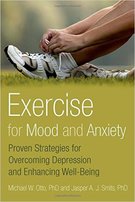
Exercise for Mood and Anxiety, Michael Otto and Jaspar Smits
Exercise has long been touted anecdotally as an effective tool for mood improvement, but only recently has rigorous science caught up with these claims. There is now overwhelming evidence that regular exercise can help relieve low mood-from feelings of stress and anxiety to full depressive episodes.
Exercise has long been touted anecdotally as an effective tool for mood improvement, but only recently has rigorous science caught up with these claims. There is now overwhelming evidence that regular exercise can help relieve low mood-from feelings of stress and anxiety to full depressive episodes.
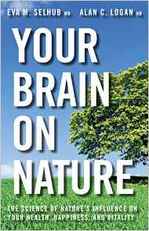
Your Brain on Nature, Eva Selhub and Alan Logan
Every tech-addict's guide to restoring health and balance in an increasingly IT-dependent world.
Scientific studies have shown that natural environments can have remarkable benefits for human health. Natural environments are more likely to promote positive emotions, and viewing and walking in nature have been associated with heightened physical and mental energy. Nature has also been found to have a positive impact on children who have been diagnosed with impulsivity, hyperactivity and attention-deficit disorder.
In Your Brain on Nature, physician Eva Selhub and naturopath Alan Logan examine not only the effects of nature on the brain, but the ubiquitous influence of everyday technology on the brain, and how IT overload and its many distractions may even be changing it.
Every tech-addict's guide to restoring health and balance in an increasingly IT-dependent world.
Scientific studies have shown that natural environments can have remarkable benefits for human health. Natural environments are more likely to promote positive emotions, and viewing and walking in nature have been associated with heightened physical and mental energy. Nature has also been found to have a positive impact on children who have been diagnosed with impulsivity, hyperactivity and attention-deficit disorder.
In Your Brain on Nature, physician Eva Selhub and naturopath Alan Logan examine not only the effects of nature on the brain, but the ubiquitous influence of everyday technology on the brain, and how IT overload and its many distractions may even be changing it.
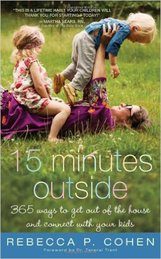
15 Minutes Outside: 365 Ways to Get Out of the House and Connect with Your Kids, Rebecca Cohen
One of the key therapeutic aspects of nature is that it brings people together. Healthy social connection is powerfully therapeutic, and quality time with parents or caregivers having fun outside cements security, belonging and lifelong active-living habits. Studies show that fun time doing physical activity with a parent or caregiver has a stronger influence on adult healthy lifestyle than either phys-ed at school, or participation in organized sport. Plus its mentally and physically healthy for parents too.
This inspiring collection of activities gives families an idea for every day of the year, requiring little planning, no expertise and relatively little resources (time, cash, or patience!), no matter where they live. Simple and inspiring, this book is bursting with hundreds of easy ways to get your family out into nature a little bit every day.
One of the key therapeutic aspects of nature is that it brings people together. Healthy social connection is powerfully therapeutic, and quality time with parents or caregivers having fun outside cements security, belonging and lifelong active-living habits. Studies show that fun time doing physical activity with a parent or caregiver has a stronger influence on adult healthy lifestyle than either phys-ed at school, or participation in organized sport. Plus its mentally and physically healthy for parents too.
This inspiring collection of activities gives families an idea for every day of the year, requiring little planning, no expertise and relatively little resources (time, cash, or patience!), no matter where they live. Simple and inspiring, this book is bursting with hundreds of easy ways to get your family out into nature a little bit every day.
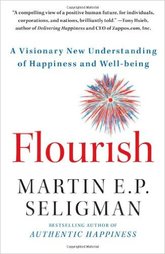
In Flourish, Martin Seligman.
Seligman emphasizes the difference between the mere absence of mental illness, and the ability to live well. He points out that the relatively young field of psychology has focused on illness, but has not been as successful in equipping patients with skills for living well (despite or with conditions). Many mental health issues occur when people are ill equipped with the tools for thriving and are hit with adverse circumstances. Based on assumptions of innate human drive toward self-actualization and a positive, constructive life experience, Seligman discusses the failure of illness and deficit oriented approaches to teach skills for living well. He draws on recent psychology and neuroscience in a very readable style, basing his conclusions on research he leads and his experience leading the American Psychological Association. Link to Book
Seligman emphasizes the difference between the mere absence of mental illness, and the ability to live well. He points out that the relatively young field of psychology has focused on illness, but has not been as successful in equipping patients with skills for living well (despite or with conditions). Many mental health issues occur when people are ill equipped with the tools for thriving and are hit with adverse circumstances. Based on assumptions of innate human drive toward self-actualization and a positive, constructive life experience, Seligman discusses the failure of illness and deficit oriented approaches to teach skills for living well. He draws on recent psychology and neuroscience in a very readable style, basing his conclusions on research he leads and his experience leading the American Psychological Association. Link to Book
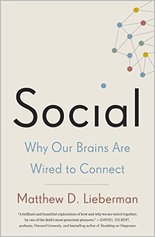
Social, Matthew Lieberman.
Lieberman debunks outdated psychology ideas that are still entrenched in popular thinking and political, social and economic policy, such as the assumptions of rational self-interest as a primary basis of human behaviour. Using more contemporary research in psychology and neuroscience, Lieberman shows how our brain is wired for social connection and adapted for collective survival and thriving. The over-emphasis in North American society on individualism results in societal structures which are isolating. Lieberman connects the current mental health pandemic with isolation which goes against the fundamental human need for healthy relational connection. Link to Book
Lieberman debunks outdated psychology ideas that are still entrenched in popular thinking and political, social and economic policy, such as the assumptions of rational self-interest as a primary basis of human behaviour. Using more contemporary research in psychology and neuroscience, Lieberman shows how our brain is wired for social connection and adapted for collective survival and thriving. The over-emphasis in North American society on individualism results in societal structures which are isolating. Lieberman connects the current mental health pandemic with isolation which goes against the fundamental human need for healthy relational connection. Link to Book
Helpful Websites
Mental Health First Aid Canada: www.mentalhealthfirstaid.ca
Mental Health Central (free resources, self-tests): http://www.moodsmag.com/mhc/
Information for young adults, parents and others who work with:
Young adults:
http://teenmentalhealth.org/
Children and young adults:
www.aboutkidshealth.ca/mentalhealth
Child and Youth Mental Health Factsheet (prepared by Ontario School Board)
Mental wellbeing and resilience, all ages:
www.healthyllg.org
Help Site for Teens
To Write Love On Her Arms (https://twloha.com/)
Mental Health Central (free resources, self-tests): http://www.moodsmag.com/mhc/
Information for young adults, parents and others who work with:
Young adults:
http://teenmentalhealth.org/
Children and young adults:
www.aboutkidshealth.ca/mentalhealth
Child and Youth Mental Health Factsheet (prepared by Ontario School Board)
Mental wellbeing and resilience, all ages:
www.healthyllg.org
Help Site for Teens
To Write Love On Her Arms (https://twloha.com/)
